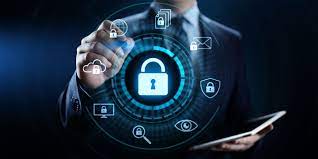You likely have personal
information stored online, including login credentials, financial details, and
personal documents. Cybersecurity measures help prevent unauthorized access and
protect this sensitive information from theft or misuse.
2. Financial Security:
Cybersecurity helps safeguard
your financial assets, such as bank accounts and credit card information, from
being compromised by hackers. This protection is crucial for preventing
financial losses and identity theft.
3. Online Privacy:
With the increasing amount of
personal data shared online, cybersecurity helps maintain your privacy by
protecting against unauthorized tracking, data mining, and surveillance.
4. Email and Communication Security:
Email is a common target for
phishing attacks. Cybersecurity measures, such as email encryption and
authentication, help ensure the security of your communication channels and
prevent falling victim to scams.
5. Protection from Online Threats:
Cybersecurity tools, such as
antivirus software and firewalls, protect your devices from malware, ransomware,
and other online threats. This is essential for the smooth and secure operation
of your computer and other connected devices.
6. Social Media Security:
Social media accounts often
contain personal information and are susceptible to hacking attempts.
Cybersecurity practices help secure your social media accounts, preventing
unauthorized access and potential misuse of your online identity.
7. Prevention of Identity Theft:
Cybersecurity measures play a
crucial role in preventing identity theft, where malicious actors use your
personal information to commit fraud or other criminal activities.
8. Protection of Digital Assets:
If you have digital assets such
as photos, documents, or creative works, cybersecurity helps prevent
unauthorized access, modification, or deletion of these files.
9. Safe Online Transactions:
When making online purchases or
financial transactions, cybersecurity ensures the secure transfer of sensitive
information, protecting you from fraudulent activities.
10. Prevention of Social Engineering Attacks:
Cybersecurity awareness helps you
recognize and avoid social engineering attacks, where attackers manipulate
individuals to divulge sensitive information or perform certain actions.
In summary, cybersecurity is important for you as an individual because it protects your personal information, financial assets, and digital identity. By implementing cybersecurity practices and using secure online habits, you can significantly reduce the risk of falling victim to cyber threats and enjoy a safer online experience.

